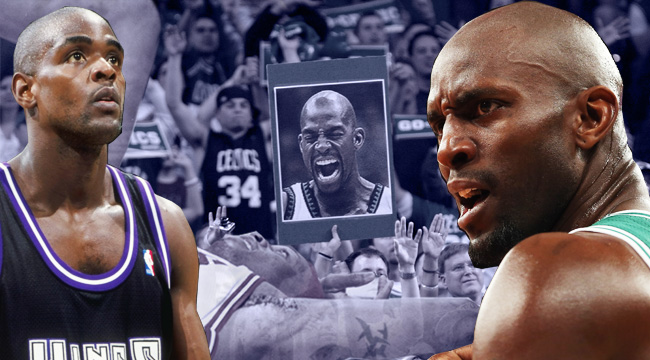
Sometimes, teams get fleeced. It’s not as prevalent in today’s NBA where most front office units have an analytics department and can accurately assess a player’s return on investment, but bad deals still happen.
Because we’re coming up on the start of the NBA season, most people aren’t even thinking about possible trade deals. That’s because the February deadline is still a half-season of actual basketball away, and teams are still figuring out what their new personnel can do and how they’ll gel over the long haul of 82 games (and hopefully more). After going through the biggest free agency signings in NBA history, we think it’s actually the perfect time to look at some of the most one-sided trades.
You know most of these already because they live on in NBA folklore, and double as a general manager’s waking nightmare.
Dennis Rodman to the Chicago Bulls
San Antonio Spurs receive Will Perdue
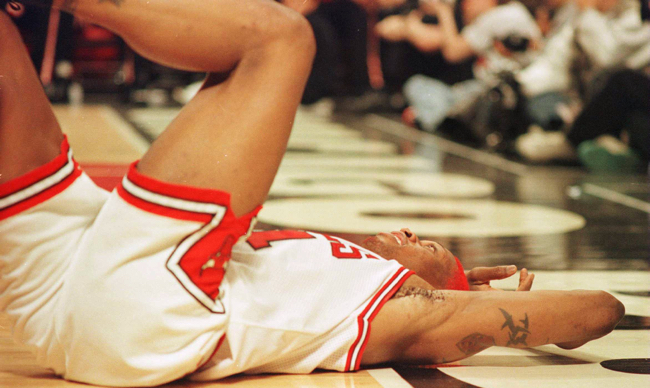
We don’t normally associate the San Antonio Spurs with bad roster moves, but all things considered, the Spurs hindsight sees how lopsided this deal was with clear 20/20 vision.
With the Bulls, Rodman would play an instrumental role in the Jordan’s second three-peat by serving as one of the NBA’s best defenders while continuing to destroy everyone on the boards. Rodman would win two rebounding titles with the Bulls and provided a level of intensity that the Bulls desperately needed after losing to the Magic in the 1995 playoffs. After the 1996 Finals, SuperSonics head coach George Karl said “Dennis Rodman is the reason they were successful.”
For the Spurs, it made sense that the team wanted to get rid of him. The Spurs faltered in the 1995 playoffs because of Rodman’s antics. He would show up 30 minutes late to a practice a day before a series-deciding game against the Houston Rockets. Then-coach Dave Cowens benched Rodman, and the Rockets jumped out to a 16-point lead before Dennis ever got on the floor. Will Perdue worked as a serviceable center, but never had close to the impact for the Spurs that Rodman did for the Bulls.
Pau Gasol to the Los Angeles Lakers
Memphis Grizzlies receive Kwame Brown, Javaris Crittenton, Marc Gasol, a 2008 1st round draft pick and a 2010 1st round draft pick
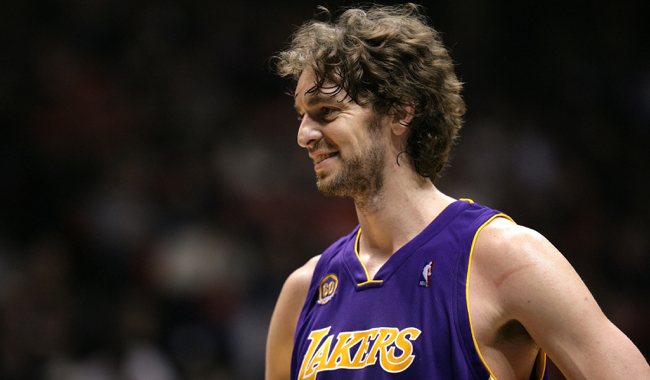
This deal is almost more about who the Lakers gave up than what the Lakers received — and they received three consecutive Finals appearances, two titles and some wonderful basketball from one Pau Gasol. The Lakers were able to unload all-world disappointment Kwame Brown and Javaris Crittenton, who would later receive a 23-year prison sentence after pleading guilty to manslaughter.
For the Lakers, Gasol would develop a great rapport with Kobe Bryant and Lamar Odom on the floor as the trio would lose to the Celtics in the year that Gasol joined the team, but would beat the Magic and Celtics in a Finals rematch over the next two seasons. Gasol served as a big man who could score with his back to the basket, extend the defense out to 18feet, and pass as well as any big man in the league. Gasol and Odom worked together for some of the most beautiful interior passing sequences we’ve seen while Gasol and Bryant would form a friendship few of us thought Bryant was capable of having.
While Gasol was never appreciated for what he brought to Los Angeles, his landing on the Lakers not only lifted his legacy, but the legacy of Bryant who desperately wanted to win without Shaquille O’Neal.
Kevin Garnett to the Boston Celtics
MInnesota Timberwolves receive: Al Jefferson, Ryan Gomes, Sebastian Telfair, Gerald Green, Theo Ratliff, cash considerations, two 1st round draft picks (one top-3 protected)
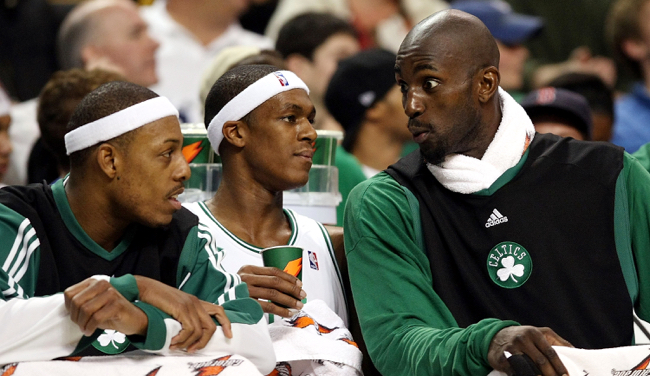
What made this trade even more impactful is that it was the deciding factor in Ray Allen deciding to join the Celtics in free agency. While Miami’s Big 3 is often mentioned first when we talk about ‘super teams,’ the Celtics trio of Garnett, Allen and Paul Pierce is what essentially sparked the culture of players coming together on a single team.
Garnett’s affect on the team was felt immediately as he helped lead the Celtics to their first title since 1986 while averaging 18 points and nine rebounds per game and serving as the anchor for one of the best defensive teams in NBA history. Garnett would also claim the Defensive Player of the Year award. The recently retired Big Ticket also played the role of mentor for Rajon Rondo and Kendrick Perkins, both of whom would grow into solid players and, well, a**holes on the court.
The Celtics would go on to play in another NBA Finals series two years after winning their original title. The Minnesota Timberwolves have won more than 30 games just twice in the nine years following the franchise trading Garnett to Boston.
Oscar Robertson to the Milwaukee Bucks
Cincinnati Royals receive Charlie Paulk and Flynn Robinson
The Milwaukee Bucks won their only championship in franchise history in 1971, the season that Oscar Robertson was traded to the team. That year, Robertson would team up with Lew Alcindor (Kareem Abdul-Jabbar) to win 67 games and go 12-2 during the postseason. On the season, Robertson averaged 19.4 points, 8.2 assists and 5.7 rebounds per game while Alcindor averaged 31.7 points and 16.0 rebounds.
Robertson would only play four years with Milwaukee, but it’s still more than the combined number of games of Charlie Paulk and Flynn Robinson ever played in Cincinnati after the trade. Each man only played a single season with the Royals, with Paulk retiring after the ‘71 season at the age of 25.
Meanwhile, Robertson would help lead the Bucks back to another NBA Finals, ultimately falling to the Boston Celtics in Game 7. A title and a second Finals berth were well worth Paulk and Robinson.
Moses Malone to the Philadelphia 76ers
Houston Rockets receive 32-year-old center Caldwell Jones and a future first-round pick, which ended up being forward Rodney McCrae
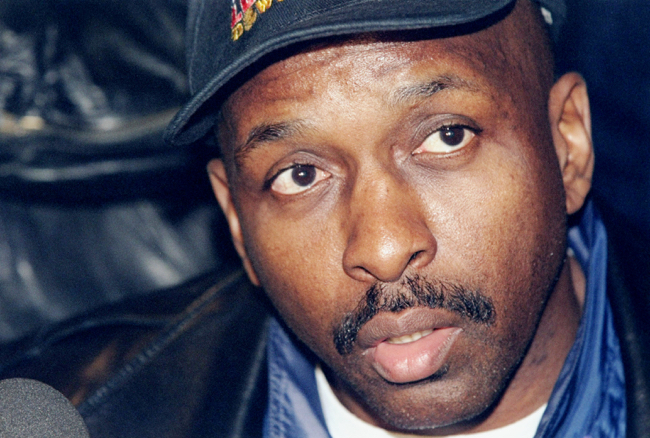
Moses Malone was the NBA’s MVP as a member of the Houston Rockets following the 1982 season. The very next year he was a Philadelphia 76er. Malone only played four seasons with the Sixers, but during that time, he averaged 24 points and 13 rebounds, including the ’83 season in which he averaged 25 points and 15 rebounds while leading Philadelphia to the NBA title and capturing his third –and final — NBA MVP (but first in Philly).
Malone also won the NBA Finals MVP award that first year after leaving Houston, helping Dr. J win his one and only NBA title after the ABA-NBA merger. The Rockets would only win 14 and 29 games the following two seasons after Moses was dealt.
While losing Malone hurt the Rockets in the short term, their abysmal 1984 season led to the team drafting Hakeem Olajuwon, who would lead the franchise to two titles in the 90s. It’s hard to weigh the short term versus long-term residual effects of Malone going to the 76ers instead of staying with the Rockets, but as far as the single player is concerned, Philly got exactly what they wanted from the deal, which crippled the Rockets for two seasons.
Chris Webber to the Sacramento Kings
Washington Wizards receive Mitch Richmond and Otis Thorpe
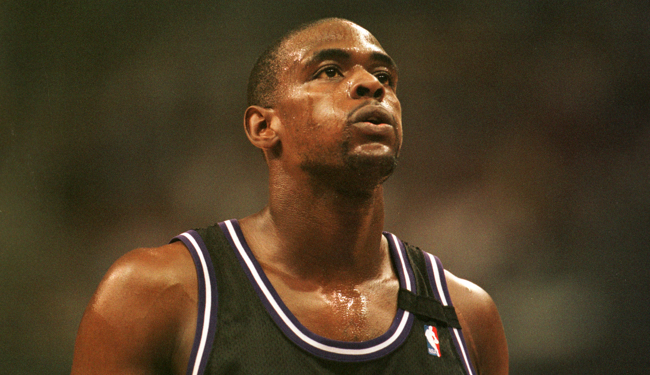
If we want to find patient zero of this plague of modern run-and-gun offenses, the Sacramento Kings of the early 2000s are a great place to start. The team was built on principles that make the current Golden State Warriors so special: ball movement, pace and three-point shooting. Mike Bibby was the engine that made the Kings run; Peja Stojakovic and Hedo Turkoglu were the pistons that kept the engine churning; But Chris Webber was the timing belt — nothing worked without his existence.
Webber was a wonderful passer, could score at will and was the heart of one of the most fun teams to watch in NBA history. The former Fab Fiver’s tenure with the Kings never resulted in an NBA title (queue flashbacks to that phenomenal 2002 team that was a game away from the NBA Finals), but they played a brand of basketball that was counter to the culture of individualism that dominated the era. And for that alone, Webber’s presence in Sacramento was one of the most influential deals in NBA history.
Wilt Chamberlain to the Philadelphia 76ers
San Francisco Warriors receive: Connie Dierking, Paul Neumann, Lee Shaffer and cash considerations
In the four full seasons that Wilt Chamberlain played for the San Francisco Warriors, he averaged 41 points and 25 rebounds, but those ungodly numbers never resulted in a title for the franchise. Warriors owner Franklin Mieuli wasn’t a fan of Chamberlain, saying “Chamberlain is not an easy man to love [and] the fans in San Francisco never learned to love him. Wilt is easy to hate […] people came to see him lose.” So he traded the center to Philadelphia.
While his scoring totals dropped considerably while in the City of Brotherly Love, Wilt still averaged 27 points and 24 rebounds per game in the three full seasons he was a Sixer. More importantly, Chamberlain was able to lead the 76ers to a championship in 1967, where he averaged a near triple double during the postseason with 21 points, 29 (!) rebounds and nine assists per game. Chamberlain may not have been loved in San Francisco, but he received the adoration from fans after leading Philly to its first NBA Finals (the franchise had one other title as the Nationals in Syracuse).
Charles Barkley to the Phoenix Suns
Philadelphia 76ers receive: Jeff Hornachek, Andrew Lang and Tim Perry
Charles Barkley wanted out of Philly. The team had been floundering after their 53-win season in 1990, and Barkley wanted to play for a contender. Philly obliged and sent him out to the desert to play for the Phoenix Suns.
That year, Barkley would win the NBA’s MVP award and lead the Suns to the NBA Finals, only to lose to Michael Jordan’s Bulls in six hard-fought games. The Suns would never see the same postseason success after that lone finals appearance for Barkley (they lost in the Western Conference semifinals the following two seasons), but Barkley proved that he was one of the NBA’s premier players in the season after the trade while Philly moved Hornachek before the trade deadline the year of the deal and didn’t really get much out of either Lang or Perry.
Kareem Abdul-Jabbar to the Los Angeles Lakers*
Milwaukee Bucks receive: Junior Bridgeman, Dave Meyers, Elmore Smith and Brian Winters
*Walt Wesley was also traded to Milwaukee with Kareem

Despite winning a title in Milwaukee, Kareem Abdul-Jabbar was never quite happy being in the city, and ultimately asked to be traded from the team. He landed in Los Angeles, where he would go on to win five more titles playing alongside Magic Johnson, James Worthy and Jamaal Wilkes.
What did Milwaukee get in return? A few guys who would go on to have decent seasons with Milwaukee, but no one even remotely close to becoming a cornerstone who would help the team become a title contender without Kareem.
Abdul-Jabbar would win his sixth NBA MVP award in 1980, the year the Lakers drafted point guard Magic Johnson. In 1985, he would win the Finals MVP, and would stay on the Lakers squad until 1989. During his time with the Lakers, he was a foundational core of one of the finest dynasties in all of basketball. Only the Celtics of the late-50s and early-60s would be more consistently successful over a longer period of basketball, making this trade the most lopsided in NBA history.






